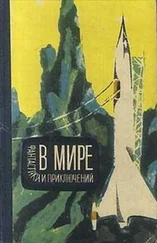Валентина Журавлева - Stone from the Stars
Здесь есть возможность читать онлайн «Валентина Журавлева - Stone from the Stars» весь текст электронной книги совершенно бесплатно (целиком полную версию без сокращений). В некоторых случаях можно слушать аудио, скачать через торрент в формате fb2 и присутствует краткое содержание. Жанр: Фантастика и фэнтези, на английском языке. Описание произведения, (предисловие) а так же отзывы посетителей доступны на портале библиотеки ЛибКат.
- Название:Stone from the Stars
- Автор:
- Жанр:
- Год:неизвестен
- ISBN:нет данных
- Рейтинг книги:4 / 5. Голосов: 1
-
Избранное:Добавить в избранное
- Отзывы:
-
Ваша оценка:
- 80
- 1
- 2
- 3
- 4
- 5
Stone from the Stars: краткое содержание, описание и аннотация
Предлагаем к чтению аннотацию, описание, краткое содержание или предисловие (зависит от того, что написал сам автор книги «Stone from the Stars»). Если вы не нашли необходимую информацию о книге — напишите в комментариях, мы постараемся отыскать её.
Stone from the Stars — читать онлайн бесплатно полную книгу (весь текст) целиком
Ниже представлен текст книги, разбитый по страницам. Система сохранения места последней прочитанной страницы, позволяет с удобством читать онлайн бесплатно книгу «Stone from the Stars», без необходимости каждый раз заново искать на чём Вы остановились. Поставьте закладку, и сможете в любой момент перейти на страницу, на которой закончили чтение.
Интервал:
Закладка:
We set to work at once. It was the engineers' task to determine who was inside the cylinder; Astakhov's and mine, to provide two-way biological protection-to protect the living creatures within from our earthly bacteria, and ourselves from any bacteria the space ship might contain.
I do not know exactly how the engineers tackled their part of the job. I had no time to see what they were doing. I only remember that they subjected the cylinder to ultrasound and gamma radiation. Astakhov and I went to work on the biological end. After some discussion (Astakhov's being hard of hearing delayed things somewhat), it was decided to open the cylinder with manipulators operated from the distance. The sealed chamber in which the space ship stood was to be treated with ultra-violet rays.
We worked at top speed, conscious of the living creature nearby awaiting our assistance. We did everything that was humanly possible to do.
The manipulators using a hydrogen burner carefully cut through the metal covering in which the space ship's apparatus was encased. Through slit-windows in the concrete wall of the room we watched the remarkable accuracy and precision with which the huge mechanical hands worked. Slowly, centimetre by centimetre, the flame of the burner cut through the strange, highly refractory metal, until at last the base of the cylinder could be removed.
What lay inside was living matter if not a living creature-a giant brain throbbing with life.
I use the word "brain" solely for want of any other word to describe what I saw. For a moment it looked to me like an exact replica, if magnified, of the human brain. On closer examination however I saw where I had been mistaken. It was only part of a brain. What was missing, we discovered later, were all those departments, all those centres that govern the emotions and instincts. Moreover, w had only a few of the innumerable "thinking" centres of the human brain, though these were enormously magnified.
To be more exact, it was a neutron computing machine with artificial brain matter in place of the usual electronic diodes and triodes. I surmised this at once from a great number of minor indications, but my supposition later proved to be correct.
Somewhere, on some unknown planet, science had advanced far beyond our own. We on Earth have only begun to synthesize the simplest protein molecules. They had succeeded in synthesizing the highest forms of organic matter. We biochemists too are working toward that end, but we are still very far from our goal.
I must admit that the contents of the space ship were a great surprise to all of us. All except Astakhov. He was the first to recover the power of speech.
"There you are!" he exclaimed. "Exactly what I predieted! You may remember what I wrote two years ago... Inter-stellar distances are too great for man. Only space ships that operate completely automatically can undertake journeys from one island universe to another. Automatically! Electronic machines, perhaps? No, too complicated. Out of the question. What is needed is the most perfect of all mechanisms-the brain. Two years ago I wrote about this. But some biochemists did not agree with me. I said that for inter-stellar travel we must have bio-automatons, capable of cellular regeneration..."
Astakhov had indeed published an article two years before advancing this idea. I confess it had sounded utterly fantastic to me. Yet he had been right after all. He had foreseen the possibility of synthesizing the highest form of matter-brain tissue-this anticipating scientific progress by many centuries.
It must be admitted that we scientists who work in narrow fields show little imagination in predicting the future. We are far too engrossed in what we are doing in the present to foresee the shape of things to come. There are automobiles today, and in a hundred years there will be automobiles too, only with far greater speeds. Similarly we cannot imagine that the airplane of the future will differ greatly from the present except in the matter of speed. But, alas, that only shows how limited our vision is. And that is why the shape of the Future is often more clearly envisioned by non-specialists.
Sometimes that Future seems altogether incredible, altogether fantastic and unattainable. Nevertheless it comes to pass! Heinrich Hertz, who was the first to study electromagnetic vibrations, rejected the idea of wireless communication. Yet a few years later Alexander Popov invented the radio.
Yes, I had not believed in Astakhov's idea. In order to produce bio-automatons some extremely complex problems would have to be solved. We would have to synthesize the highest forms of proteins, learn to control bio-electronic processes, induce living and non-living matter to work together. All this seemed to me to belong to
the realm of sheer fantasy. Yet here right before our eyes was that distant Future. True, it was the fruit of the endeavours of men from another planet than ours, but nonetheless tangible confirmation of the great truth that there can be no limits to scientific knowledge, no idea too bold to be realized.
We did not know anything about the atmoshere inside the cylinder and how our own atmosphere would affect the artificial brain. Therefore compressor units and gas containers were held in readiness to adjust the atmosphere inside the sealed chamber to that in the cylinder. When the cylinder was opened the atmosphere inside it was found to consist of one-fifth oxygen and four-fifths helium at a pressure one-tenth greater than that on Earth. The brain continued to pulsate, though perhaps a little faster than before.
There was a whining sound as the compressors went into action to raise the pressure. The first stage of the work was over.
I went upstairs to Nikonov's office. I moved his armchair over to the window and raised the blinds. Outside dusk was settling over the city. Night had come again, the second night since I had been summoned to the institute. Yet it seemed I had been there only a few hours.
So the atmosphere in the space ship was 20 per cent oxygen-the same as in the Earth's atmosphere. Was this fortuitous? No. This was exactly the concentration the human organism needs. Hence, there must be some sort of circulatory system in the space ship. But if one part of the brain should die, circulation would be disrupted and hence the entire brain would perish.
This thought sent me hurrying downstairs again.
Even as I recall our efforts to save the artificial brain I am overwhelmed again by a feeling of impotence and bitterness.
What could we do? Nothing. Nothing but look on helplessly while the brain that had come to us from outer space, the brain created by the inhabitants of another planet, slowly expired.
The lower part dried up and turned black. Only the upper section remained throbbingly alive. When anyone approached it the throbbing became quick and feverish, as if the brain were calling frantically for help.
By now we knew how the brain was supplied with oxygen. As I had presumed, it breathed with the help of a chemical compound resembling haemoglobin. We had also studied the devices that fed the brain, generated oxygen and removed the carbon dioxide from the atmosphere.
Yet we could do nothing to halt the destruction of the brain cells. Somewhere, on an unknown planet, thinking beings had been able to synthesize the most highly organized matter-brain matter. They had created an artificial brain and sent it out into space. There was no doubt that many of the secrets of the Universe were recorded in those brain cells. But we could not fathom them. The brain was dying before our eyes.
We tried everything, from antibiotics to surgery. Nothing helped.
In my capacity as chairman of the Special Commission of the Academy of Sciences I called a conference of my colleagues to ascertain whether there was anything else that could be done.
Читать дальшеИнтервал:
Закладка:
Похожие книги на «Stone from the Stars»
Представляем Вашему вниманию похожие книги на «Stone from the Stars» списком для выбора. Мы отобрали схожую по названию и смыслу литературу в надежде предоставить читателям больше вариантов отыскать новые, интересные, ещё непрочитанные произведения.
Обсуждение, отзывы о книге «Stone from the Stars» и просто собственные мнения читателей. Оставьте ваши комментарии, напишите, что Вы думаете о произведении, его смысле или главных героях. Укажите что конкретно понравилось, а что нет, и почему Вы так считаете.








